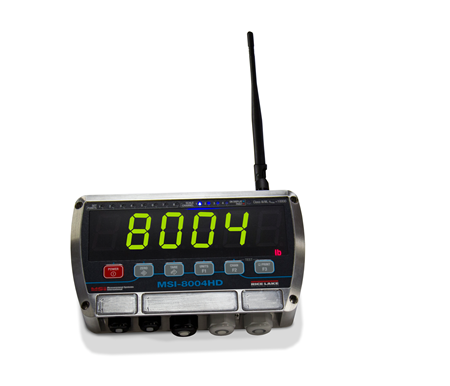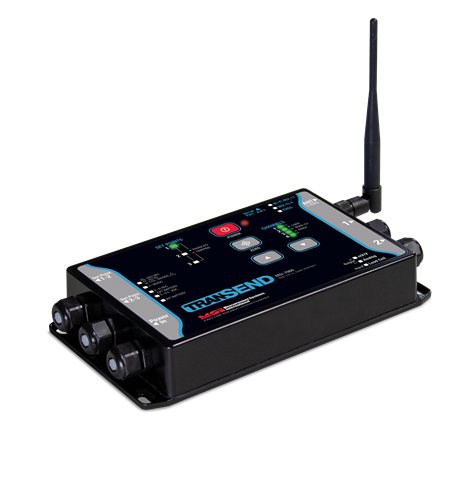Is the website displaying in the correct language? Please confirm or select a different language.
Your region has been set automatically. Please confirm or select a different region.
Flipping for Wireless
Dolphins Plus uses wireless communication with the MSI-8000HD and TranSend™ to enhance diet and weight management capabilities.
Tucked away under the lush blades of palm trees and a clear, cloudless sky is a place where dolphins and sea lions are a family —each with their own personality and unique niche within the pod. When you enter Dolphins Plus in Key Largo, Fla., whistles and clicks can be heard as the resident dolphins communicate in their own sophisticated language to each other and their trainers. Visitors’ laughter echoes around the facility and it is evident that Dolphins Plus is a special place.
Although dolphins are not considered an endangered species, marine mammal conservation efforts and research centers like Dolphins Plus aim to ensure these intelligent creatures are protected from the growing threat of natural and human endangerment. Health and diet management is critical in that effort. Together with the MSI-8000HD indicator and TranSend, a wireless load cell interface, the Dolphins Plus staff are able to easily monitor the weight of their residents and avoid perils common to other equipment in this corrosive environment.
Dolphins Plus is home to 16 Atlantic bottlenose dolphins, all with distinct names and personality traits: Alfonz, Baby Bit, Bob, Dinghy, Elvis, Isaac, Jessica, Julie, Leo, Nica, Samantha, Ige, Hurlee, Brigg, Axl and Zoe. Participants at this marine conservation center can choose between a variety of interactive, educational programs that are dedicated to promoting a greater understanding of marine ecosystem science, marine mammal conservation and environmental stewardship. Programs include natural or structured swims with dolphins, shallow water interactions, sea lion interactions, kids’ camps, becoming a marine biologist for a day and select internships for qualified applicants. These fun, interactive and educational programs keep the dolphins active and healthy but also allow for more comprehensive health, wellness and behavior research. Vice President and Director of Operations, Art Cooper, says that participants’ reactions to the animals and their programs are “overwhelmingly positive. Folks state that this was the highlight of their vacation, the best animal experience of their life, as well as educational and meaningful.” In addition to the dolphins, two sea lions and a full staff of passionate trainers and veterinarians guarantee there is never a dull moment at Dolphins Plus.
The educational programs are only one part of the staff’s daily responsibilities at Dolphins Plus. They scientifically observe and research behavior and communication in order to further their mission statement of marine mammal conservation and protection. Dolphins are well-known for three traits: communication, intelligence and social skills. They utilize verbal and non-verbal communication to express themselves, are able to learn and mimic behaviors, solve puzzles and teach each other behaviors. Bottlenose dolphins, like those at Dolphins Plus, communicate with clicks and whistle-like sounds, including a whistle that is unique to a specific dolphin known as their signature whistle. Developed within the first year of the dolphin’s life, signature whistles are just one part of the larger intelligent communication and socialization skills dolphins possess. They also display recreational behavior like acrobatic leaps above the water surface, self-made bubble rings and playing games of catch around the pod.
Diet and weight management is another large part of Dolphins Plus’ research and observation efforts. A full staff of veterinarians with the highly skilled trainers are able to study the dolphins’ behavior and weight fluctuations to key-in on any health issues. Even with a dolphin’s extraordinary communication skills, the number on the scale can paint a better picture of the dolphin’s wellbeing. A typical adult bottlenose dolphin weighs between 330 and 445 pounds, eating five to eight times a day with a diet consisting of restaurant quality, Grade A herring, capelin, sardine and a variety of smelt. If the dolphins are overfed and inactive, they become lethargic, uncooperative and potentially aggressive. On the other hand, if they are losing weight, it could signify a health issue. A reliable scale system is critical while trainers relay weight information to the veterinarian department. Together, they work to provide the best solution in healthcare for the animals.
Once a week, a floor scale with TranSend attached is lowered into the lagoon where trainers prompt each dolphin, one-by-one, to slide with ease onto the platform. Another trainer stands to the side of the lagoon with the MSI-8000HD, recording the weight that is then logged into a national marine mammal database. The dolphins are signaled back into the lagoon and the process repeats with other residents. Because of the salt water, the staff at Dolphins Plus needed equipment that could withstand long periods of time in the water as well as repeated exposure to the elements. ABSCO Industrial Weighing and Equipment had many years’ experience with marine mammal scales and were able to help Dolphins Plus with customized, durable equipment.
The milled anodized aluminum, IP68-rated, full waterproof construction of the MSI-8000HD made it especially appealing to the salt water environment at Dolphins Plus. TranSend is a wireless load cell interface that communicates directly with the MSI-8000HD, eliminating the need for a homerun cable. Fred Hilley, owner of ABSCO Industrial and Weighing Equipment, says “We frequently have to repair indicator cables on animal scales, but using Rice Lake’s TranSend has eliminated this ongoing problem.” With wireless communication and robust equipment that is less likely to be damaged, Dolphins Plus has not only saved money in repairs and service, but also saved time with equipment setup and tear down. Now, trainers and dolphins alike are able to spend more time at work and at play.
Marine mammal research and conservation facilities rely on diet and weight management in order to properly care and study the animals they consider family. Weekly weighing and thorough behavior analysis aid in these efforts. With equipment like the MSI-8000HD and TranSend, facilities like Dolphins Plus are able to wirelessly weigh in corrosive environments, eliminating costly repairs and service shutdowns.
Dr. Bob Stevens, veterinarian at Dolphins Plus, says of their wireless solutions, “We dealt with connected readers for so many years. When wireless was available,
it was outstanding. We didn’t even realize we needed it until we found out it was available.” Like the dolphins, Rice Lake’s intelligent communication exceeds expectations and environmental limitations.
Subscribe to Rice Lake Magazine
Sign in or create a Rice Lake website account to request a Rice Lake Magazine filled with application stories like this one be sent to you.
Account Sign In Create an Account


 My Account
My Account








